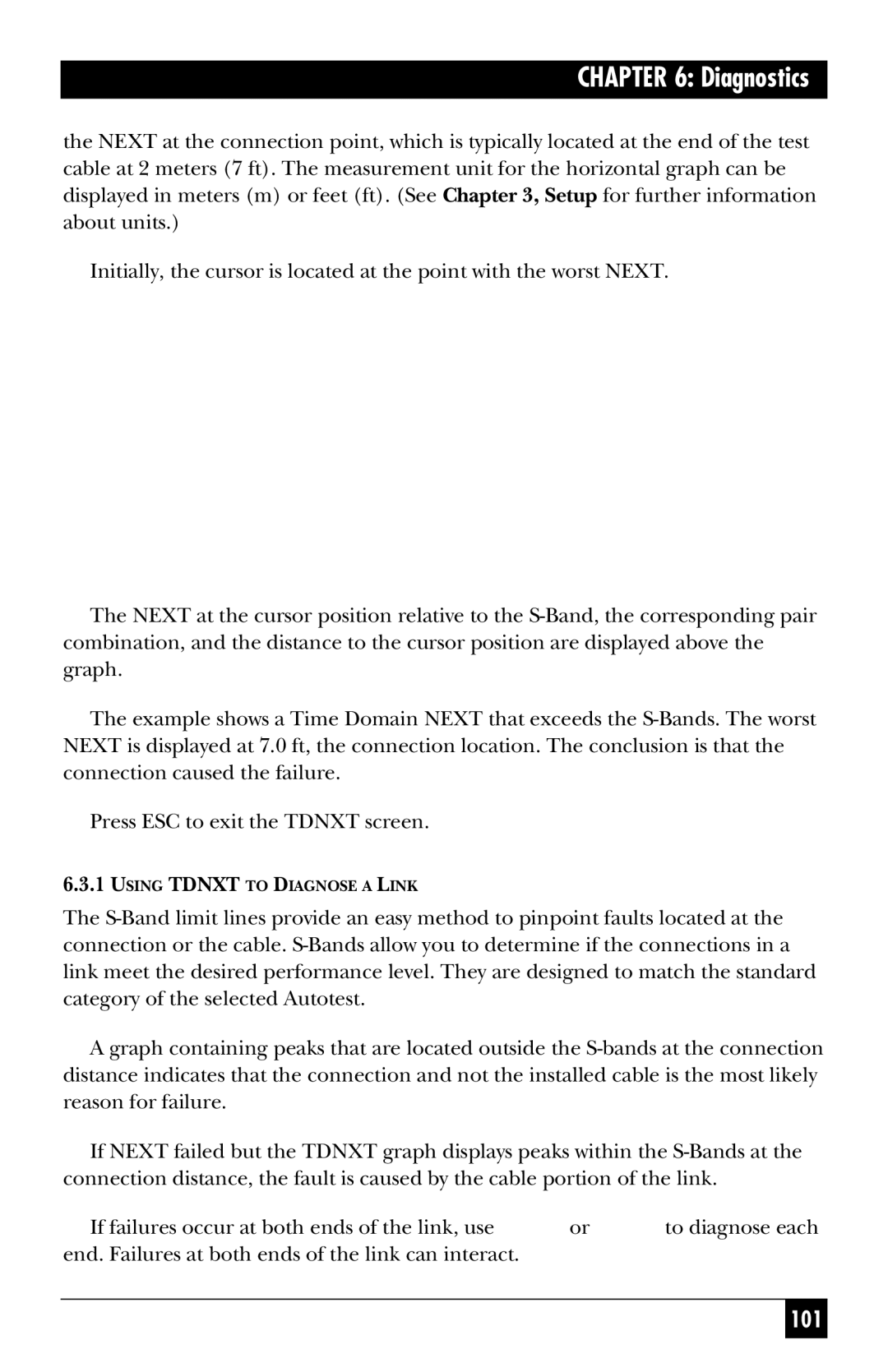
CHAPTER 6: Diagnostics
the NEXT at the connection point, which is typically located at the end of the test cable at 2 meters (7 ft). The measurement unit for the horizontal graph can be displayed in meters (m) or feet (ft). (See Chapter 3, Setup for further information about units.)
Initially, the cursor is located at the point with the worst NEXT.
The NEXT at the cursor position relative to the
The example shows a Time Domain NEXT that exceeds the
Press ESC to exit the TDNXT screen.
6.3.1USING TDNXT TO DIAGNOSE A LINK
The
A graph containing peaks that are located outside the
If NEXT failed but the TDNXT graph displays peaks within the
If failures occur at both ends of the link, use ![]() or
or ![]() to diagnose each end. Failures at both ends of the link can interact.
to diagnose each end. Failures at both ends of the link can interact.
